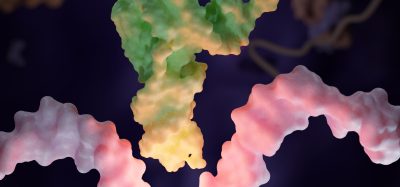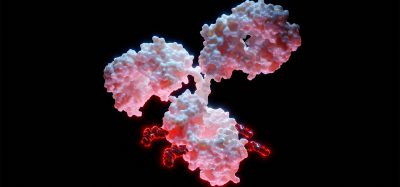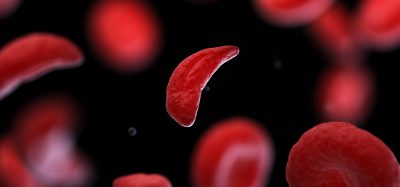Prothena reports robust reduction of free serum alpha-synuclein of up to 96% after single dose of PRX002, a novel protein immunotherapy for Parkinson’s disease
Posted: 20 March 2015 | Victoria White
Prothena has announced positive results from a study of PRX002, a monoclonal antibody for the potential treatment of Parkinson’s disease…


Prothena has announced positive results from a Phase 1 single ascending dose study of PRX002, a monoclonal antibody for the potential treatment of Parkinson’s disease and other related synucleinopathies. PRX002 is the focus of a worldwide collaboration between Prothena and Roche.
All doses of PRX002 found to be safe and well tolerated
PRX002 was safe and well-tolerated, meeting the primary objective of the study. Further, results from this study showed that administration of PRX002 leads to mean reduction of free serum alpha-synuclein levels of up to 96%. These overall results were highly statistically significant (p < 0.00001). Reduction of free serum alpha-synuclein, a protein potentially involved in the onset and progression of Parkinson’s disease and the target of PRX002, was shown to be robust, rapid and dose-dependent after just a single dose.
“There is genetic and pathological evidence that supports a causal role of alpha-synuclein in Parkinson’s disease,” said Todd Sherer, PhD, CEO of the Michael J. Fox Foundation for Parkinson’s Research. “We applaud Prothena and Roche for their pioneering work in developing a potentially disease-modifying therapy for this progressive neurodegenerative disease that affects millions worldwide.”
The Phase 1 double-blind, placebo-controlled, single ascending dose study enrolled 40 healthy volunteers. All volunteers enrolled were randomized 3:1 into five escalating dose cohorts (0.3 mg/kg, 1 mg/kg, 3 mg/kg, 10 mg/kg or 30 mg/kg) to receive either PRX002 or placebo. No hypersensitivity reactions or drug-related serious adverse events were reported. PRX002 demonstrated favorable pharmacokinetic properties, supporting the current dosing frequency in the on-going Phase 1 multiple ascending dose study in patients with Parkinson’s disease. There were no treatment emergent adverse events (TEAEs) in greater than 10% of subjects. The only TEAEs in greater than 5% of subjects were vessel puncture site pain, headache and viral infection. All PRX002-related adverse events were mild and no dose limiting toxicities were observed.
Results of study demonstrate rapid and dose-dependent reduction of free serum alpha-synuclein
“We are extremely pleased with the results of the Phase 1 single ascending dose study as the mean reduction of free serum alpha-synuclein of up to 96% demonstrates the pharmacodynamic effects of PRX002,” commented Gene Kinney, PhD, Chief Scientific Officer and Head of Research and Development at Prothena. “Importantly and for the first time in humans, we demonstrated that this robust, rapid and dose-dependent reduction of free serum alpha-synuclein was safe and well-tolerated. Thus, this approach may translate into a clinically meaningful delay or reversal of disease progression in patients with Parkinson’s disease. We look forward to building upon these data with results from the on-going, multiple ascending dose study in patients with Parkinson’s disease expected in the first half of 2016, where we will also be measuring levels of PRX002 in the cerebrospinal fluid and assessing additional biochemical, imaging and clinical biomarker endpoints. Separately, we are excited to co-host a symposium with Roche on March 21 at the 12th International Conference on Alzheimer’s and Parkinson’s Diseases and Related Neurological Disorders (AD/PD™ 2015) to continue to raise awareness of the role of alpha-synuclein as a target for Parkinson’s disease.”
“The results of the PRX002 study exemplify Prothena’s deep domain expertise to develop novel disease-modifying protein immunotherapies with unique specificities to their targets,” stated Dale Schenk, PhD, President and Chief Executive Officer of Prothena. “Prothena’s consistent ability to develop targeted potential therapeutics has resulted in a strong and promising pipeline to transform patient’s lives, with NEOD001 in Phase 3 clinical studies for the treatment of AL amyloidosis, PRX002 continuing in a Phase 1 multiple ascending dose study in patients with Parkinson’s disease and PRX003 ready to begin clinical studies for the treatment of psoriasis and potentially other inflammatory diseases.”
In December 2013, Prothena and Roche entered into a worldwide collaboration to develop and commercialise antibodies that target alpha-synuclein, including PRX002. To date, Prothena has received $45 million of the potential $600 million in total milestones through its collaboration with Roche. Prothena has an option to co-promote PRX002 in the U.S., where the companies share all profits, as well as development and commercialization costs, on a 30/70 basis (30% Prothena and 70% Roche). Outside the U.S., Roche will have sole responsibility for developing and commercializing PRX002 and will pay Prothena up to double-digit royalties on net sales.
For more information on the ongoing multiple ascending dose study of PRX002, please visit www.clinicaltrials.gov and search identifier NCT02157714.
For more information on Prothena Corporation plc (Nasdaq:PRTA), please visit www.prothena.com.
Related topics
Antibody Discovery, Gene Therapy








